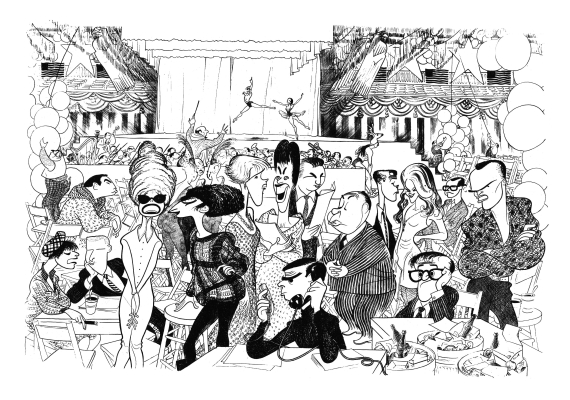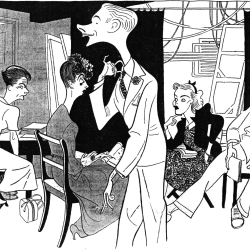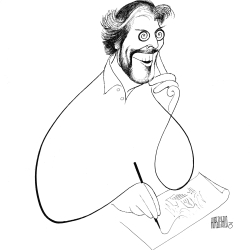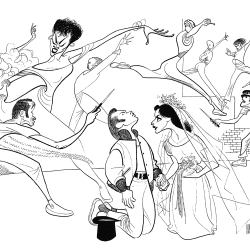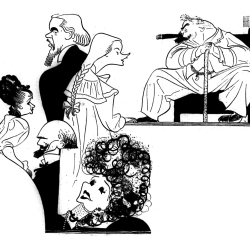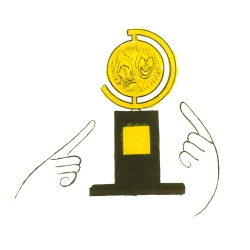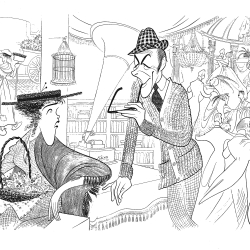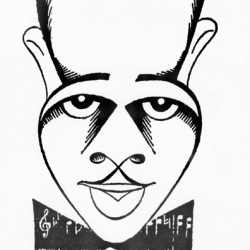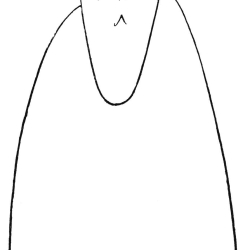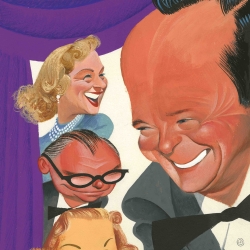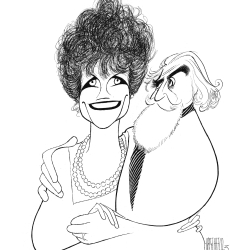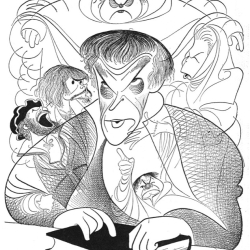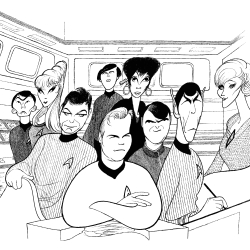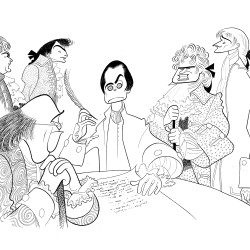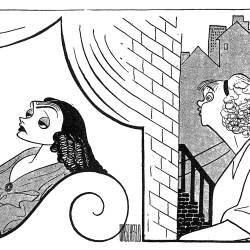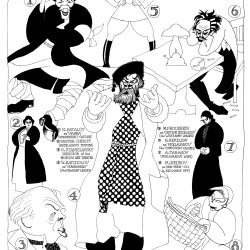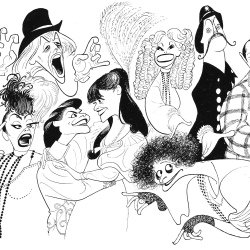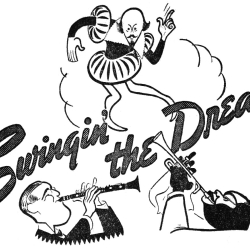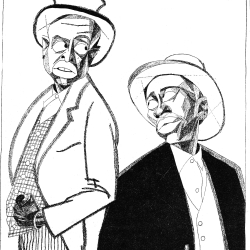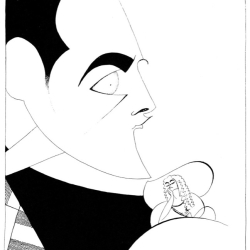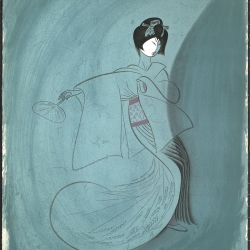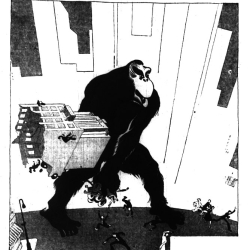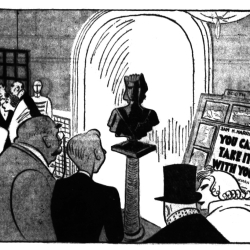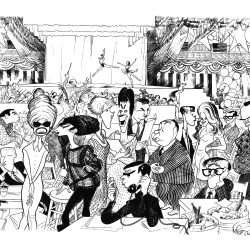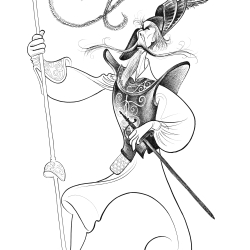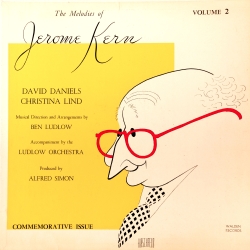1965 Washington Gala
1964 was the inaugural year for Hello, Dolly!, and audiences everywhere were smitten with Ms. Dolly Levi, portrayed by the irresistible Carol Channing. So smitten in fact, that Republican candidate Senator Barry Goldwater’s campaigns took the show’s title song and (attempted to) make "Hello, Barry" their battle cry for the election. They were quickly told that they were in copyright violation and abandoned the song. Instead, Lady Bird Johnson’s Press Secretary Liz Carpenter, who had once been a theatre critic for Variety, rewrote the lyrics with permission for the Johnson’s campaign. Channing was was invited to sing the new "Hello, Lyndon" at the 1964 Democratic National Convention, and the President became such a fan of the song that he played it constantly. (See a clip of the performance)
At the instigation of composer Richard Adler who produced Johnson’s Inauguration, Hirschfeld drew a composite of fourteen performers at the festivities. Of course, Ms. Channing was there, as well as Barbra Streisand, Julie Andrews, and Woody Allen, to name a few. Who the man just to the right of the orchestra, running away with a deer head is we don’t know.
Two months later, the Hirschfelds were invited to the White House to present President Johnson with the drawing of his Washington Gala. Hirschfeld was hesitant at first, as the last President he met in the Oval Office, Franklin Roosevelt, did not live up to Hirschfeld’s ideal. However, this meeting at the White House proved to be much more dramatic As the Hirschfeld family entered the president’s office, the phone rang and Johnson put it on speaker phone. Dr. Martin Luther King, Jr. calling from Selma, Alabama, was leading the march across the Edmund Pettus Bridge in Selma which was being blockaded by state troopers and KKK members. King said he was determined to stand up to the blockade, but President Johnson pleaded: “I understand Dr. King, and please tell them that their President is with them in spirit…I can only advise them to hold the line and avoid the spilling of more blood. May God be with you.” No one knew that Dr. King had already decided not to confront the blockade on that day, and Hirschfeld was impressed at Johnson’s support and wisdom during such a tense time.
As their fifteen minute interview stretched into an hour, Johnson talked of the moral dilemma he faced in sending more troops to Vietnam as that war escalated. His military advisers insisted that he must do it to prevent more death, but Johnson understood that no matter what he did, at least politically, he would pay the price. Hirschfeld was so engrossed that he never took out his pencil to sketch the President. His opinion of the President would change, “the cigar salesman turned into that of a warm, lovable, and confused grandmother.”
Katherine Marshall
Archives Manager
The Al Hirschfeld Foundation
